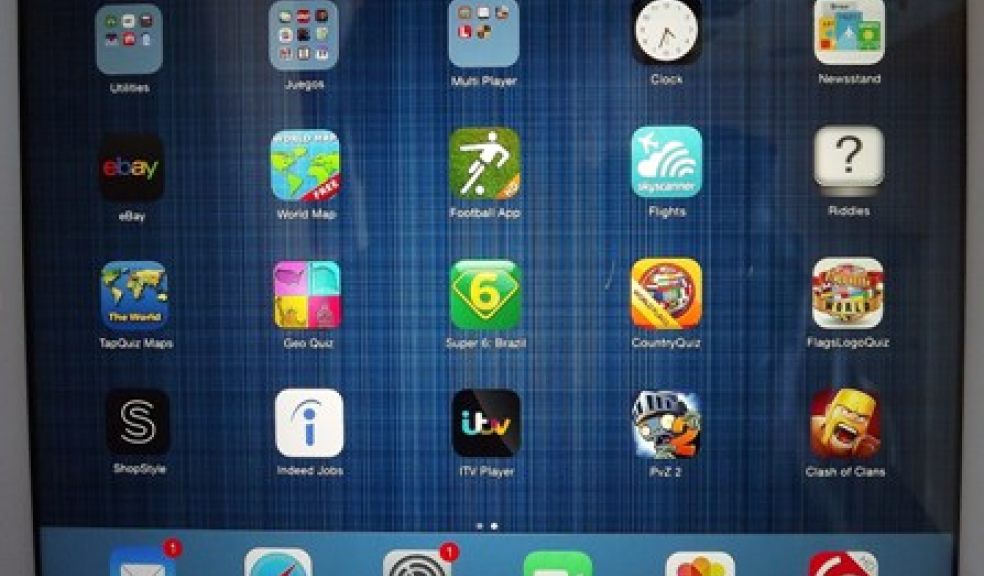
Do our communications devices distort reality?
There’s no getting away from the fact that we live increasingly in what we might call a “screen culture”. The number of hours many of us spend in front of television, lap-top, tablet or mobile phone display screen is huge (even larger if one includes vehicle windscreens). In each case we absorb information, ideas, emotions, debates, data-images, even beliefs, through a filter. Modern myths – stories that give us a purpose – are held constantly before us in the form of distant soap operas, computer games and info-programmes.
Our instant access to so much knowledge is mind-blowing and brings with it enormous educational advantage. Research has been transformed by the global Internet. We can travel in space through Google maps and across time through history channels. We can be entertained through our technologies for every minute of every day.
However, the implications of this are many and varied. Living through screens is easy and convenient. It is also persuasively addictive and therefore insatiable. Our relationships cease to be less direct and are mediated through machines. Reality can be reduced to a screened stimulation to which we make predicable responses. We are discouraged from thinking beyond the obviously visible, so looking at causes and deeper questioning is avoided. Instead we move on to the next programme or App.
There are also concerns about our inability to experience the subtle, sensitive, beautiful moments of life – sights and scents, temperature changes, body movements, silence, serendipity, gracious touches or smiles. We take lifestyle so much for granted that we are readily shocked when there are disruptions to supplies, which previous generations lived with on a regular basis. Are we so comforting ourselves with escapism that when we do encounter the very raw and abrasive aspects of life, we find them impossible to cope with?
Faith, on the other hand, has to do with beliefs that are encouraging and participative. It is not nurtured by passive observance, but grows in meeting one another, encountering Nature and, for some, discovering a sense of the divine. That is why community and a sense of belonging – to place, rhythms, seasons, family, interest-groups – is so fundamental. In the end we are not individuals – we are “persons in relationships” and our very being is determined by how we join in with others (or not). In Hebrew there is no word for relating to oneself. That is why community life is central both to a life of Faith but also underpin sustainable living. We can never do anything alone but together we can achieve so much.
No body consists of a single entity but of myriads of interconnections. So if the “screen culture” expects us to behave well as single agents of consumerism, there are ways in which the glass and the illusions can be shattered to reveal something of a greater potential underneath. This is not to deny that communications technology has a role to play in society today, but to point out that direct contact and involvement in loving relations are not easily substituted. Surely the search for encounter, inclusion and community underlies the quest for sustainability!
This article originally appeared in Devon Churches Green Action News, July 2014
There’s no getting away from the fact that we live increasingly in what we might call a “screen culture”. The number of hours many of us spend in front of television, lap-top, tablet or mobile phone display screen is huge (even larger if one includes vehicle windscreens). In each case we absorb information, ideas, emotions, debates, data-images, even beliefs, through a filter. Modern myths – stories that give us a purpose – are held constantly before us in the form of distant soap operas, computer games and info-programmes.
Our instant access to so much knowledge is mind-blowing and brings with it enormous educational advantage. Research has been transformed by the global Internet. We can travel in space through Google maps and across time through history channels. We can be entertained through our technologies for every minute of every day.
However, the implications of this are many and varied. Living through screens is easy and convenient. It is also persuasively addictive and therefore insatiable. Our relationships cease to be less direct and are mediated through machines. Reality can be reduced to a screened stimulation to which we make predicable responses. We are discouraged from thinking beyond the obviously visible, so looking at causes and deeper questioning is avoided. Instead we move on to the next programme or App.
There are also concerns about our inability to experience the subtle, sensitive, beautiful moments of life – sights and scents, temperature changes, body movements, silence, serendipity, gracious touches or smiles. We take lifestyle so much for granted that we are readily shocked when there are disruptions to supplies, which previous generations lived with on a regular basis. Are we so comforting ourselves with escapism that when we do encounter the very raw and abrasive aspects of life, we find them impossible to cope with?
Faith, on the other hand, has to do with beliefs that are encouraging and participative. It is not nurtured by passive observance, but grows in meeting one another, encountering Nature and, for some, discovering a sense of the divine. That is why community and a sense of belonging – to place, rhythms, seasons, family, interest-groups – is so fundamental. In the end we are not individuals – we are “persons in relationships” and our very being is determined by how we join in with others (or not). In Hebrew there is no word for relating to oneself. That is why community life is central both to a life of Faith but also underpin sustainable living. We can never do anything alone but together we can achieve so much.
No body consists of a single entity but of myriads of interconnections. So if the “screen culture” expects us to behave well as single agents of consumerism, there are ways in which the glass and the illusions can be shattered to reveal something of a greater potential underneath. This is not to deny that communications technology has a role to play in society today, but to point out that direct contact and involvement in loving relations are not easily substituted. Surely the search for encounter, inclusion and community underlies the quest for sustainability!
This article originally appeared in Devon Churches Green Action News, July 2014
There’s no getting away from the fact that we live increasingly in what we might call a “screen culture”. The number of hours many of us spend in front of television, lap-top, tablet or mobile phone display screen is huge (even larger if one includes vehicle windscreens). In each case we absorb information, ideas, emotions, debates, data-images, even beliefs, through a filter. Modern myths – stories that give us a purpose – are held constantly before us in the form of distant soap operas, computer games and info-programmes.
Our instant access to so much knowledge is mind-blowing and brings with it enormous educational advantage. Research has been transformed by the global Internet. We can travel in space through Google maps and across time through history channels. We can be entertained through our technologies for every minute of every day.
However, the implications of this are many and varied. Living through screens is easy and convenient. It is also persuasively addictive and therefore insatiable. Our relationships cease to be less direct and are mediated through machines. Reality can be reduced to a screened stimulation to which we make predicable responses. We are discouraged from thinking beyond the obviously visible, so looking at causes and deeper questioning is avoided. Instead we move on to the next programme or App.
There are also concerns about our inability to experience the subtle, sensitive, beautiful moments of life – sights and scents, temperature changes, body movements, silence, serendipity, gracious touches or smiles. We take lifestyle so much for granted that we are readily shocked when there are disruptions to supplies, which previous generations lived with on a regular basis. Are we so comforting ourselves with escapism that when we do encounter the very raw and abrasive aspects of life, we find them impossible to cope with?
Faith, on the other hand, has to do with beliefs that are encouraging and participative. It is not nurtured by passive observance, but grows in meeting one another, encountering Nature and, for some, discovering a sense of the divine. That is why community and a sense of belonging – to place, rhythms, seasons, family, interest-groups – is so fundamental. In the end we are not individuals – we are “persons in relationships” and our very being is determined by how we join in with others (or not). In Hebrew there is no word for relating to oneself. That is why community life is central both to a life of Faith but also underpin sustainable living. We can never do anything alone but together we can achieve so much.
No body consists of a single entity but of myriads of interconnections. So if the “screen culture” expects us to behave well as single agents of consumerism, there are ways in which the glass and the illusions can be shattered to reveal something of a greater potential underneath. This is not to deny that communications technology has a role to play in society today, but to point out that direct contact and involvement in loving relations are not easily substituted. Surely the search for encounter, inclusion and community underlies the quest for sustainability!
This article originally appeared in Devon Churches Green Action News, July 2014




















